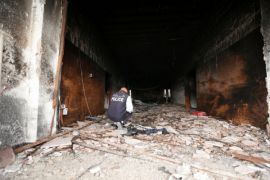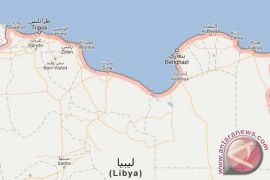Based on discussions with people who have arrived in Italy, we believe that thousands more will attempt to make this journey by sea.Geneva (ANTARA News/AFP) - Some 14,000 people have fled to Italy or Malta by boat from Libya since the beginning of the conflict and thousands more are planning to do the same, the UN refugee agency said Tuesday.
"To date around 14,000 people have arrived by boat in Italy and Malta from Libya," said Melissa Fleming, spokeswoman for the UN High Commissioner for Refugees.
"Of this number, 1,669 arrived on Friday and Saturday," she added.
"Based on discussions with people who have arrived in Italy, we believe that thousands more will attempt to make this journey by sea," said Fleming.
Hundreds of people who had initially fled to Tunisia or Egypt are even returning to Libya with plans to board Europe-bound boats.
"Among them are refugees, including members of the Somali, Ethiopian and Eritrean communities in the camps at Shousha near Tunisia`s border with Libya," said Fleming.
According to the International Organization for Migration (IOM), these refugees are prepared to brave the danger and return to Libya in the hopes of getting on Europe-bound boats, partly because of a recent EU-Tunisia deal which is preventing them from leaving from the Tunisian coast.
"Part of the agreement says that Europe would invest economically and another part says that Tunisia would help to stop boats leaving," said Jemini Pandya, spokeswoman for the IOM.
In addition, "Tunisian smugglers are refusing to take other nationalities than Tunisian," added the spokeswoman.
About 1,200 people known to have attempted the crossing since March 25 are unaccounted for, said the UNHCR.
The UN humanitarian coordinator for Libya, Panos Moumtzis, said that the UN will revise on Wednesday its aid funding appeal to cover the country`s needs for June to August.
The current appeal of 310 million dollars (219 million euros) covers needs up to the end of May. Donors have so far provided about 46 percent of the required amount.
"The longer the conflict is, the more significant the effects are on civilians," said Moumtzis, who has just returned from a mission to Libya.
He also appealed for a humanitarian pause in the Libyan conflict, saying that it is necessary to evaluate the aid needs of the population. (*)
Editor: Ella Syafputri
Copyright © ANTARA 2011



